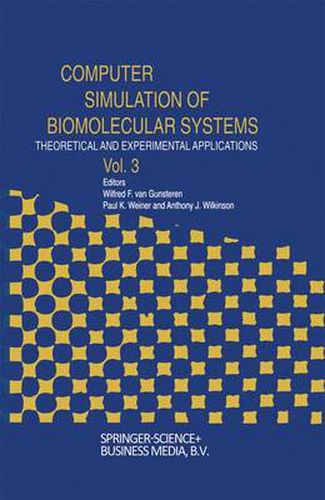Readings Newsletter
Become a Readings Member to make your shopping experience even easier.
Sign in or sign up for free!
You’re not far away from qualifying for FREE standard shipping within Australia
You’ve qualified for FREE standard shipping within Australia
The cart is loading…






This book is the third volume in this highly successful series. Since the first volume in 1989 and the second in 1993, many exciting developments have occurred in the development of simulation techniques and their application to key biological problems such as protein folding, protein structure prediction and structure-based design, and in how, by combining experimental and theoretical approaches, very large biological systems can be studied at the molecular level. This series attempts to capture that progress. Volume 3 includes contributions that highlight developments in methodology which enable longer and more realistic simulations (e.g. multiple time steps and variable reduction techniques), a study of force fields for proteins and new force field development, a novel approach to the description of molecular shape and the use of molecular shape descriptors, the study of condensed phase chemical reactions, the use of electrostatic techniques in the study of protonation, equilibria and flexible docking studies, structure refinement using experimental data (X-ray, NMR, neutron, infrared) and theoretical methods (solvation models, normal mode analysis, MD simulations, MC lattice dynamics, and knowledge-based potentials). There are several chapters that show progress in the development of methodologies for the study of folding processes, binding affinities, and the prediction of ligand-protein complexes. The chapters, contributed by experienced researchers, many of whom are leaders in their field of study, are organised to cover developments in: simulation methodology the treatment of electrostatics protein structure refinement the combined experimental and theoretical approaches to the study of very large biological systems applications and methodology involved in the study of protein folding applications and methodology associated with structure-based design.
$9.00 standard shipping within Australia
FREE standard shipping within Australia for orders over $100.00
Express & International shipping calculated at checkout
This book is the third volume in this highly successful series. Since the first volume in 1989 and the second in 1993, many exciting developments have occurred in the development of simulation techniques and their application to key biological problems such as protein folding, protein structure prediction and structure-based design, and in how, by combining experimental and theoretical approaches, very large biological systems can be studied at the molecular level. This series attempts to capture that progress. Volume 3 includes contributions that highlight developments in methodology which enable longer and more realistic simulations (e.g. multiple time steps and variable reduction techniques), a study of force fields for proteins and new force field development, a novel approach to the description of molecular shape and the use of molecular shape descriptors, the study of condensed phase chemical reactions, the use of electrostatic techniques in the study of protonation, equilibria and flexible docking studies, structure refinement using experimental data (X-ray, NMR, neutron, infrared) and theoretical methods (solvation models, normal mode analysis, MD simulations, MC lattice dynamics, and knowledge-based potentials). There are several chapters that show progress in the development of methodologies for the study of folding processes, binding affinities, and the prediction of ligand-protein complexes. The chapters, contributed by experienced researchers, many of whom are leaders in their field of study, are organised to cover developments in: simulation methodology the treatment of electrostatics protein structure refinement the combined experimental and theoretical approaches to the study of very large biological systems applications and methodology involved in the study of protein folding applications and methodology associated with structure-based design.